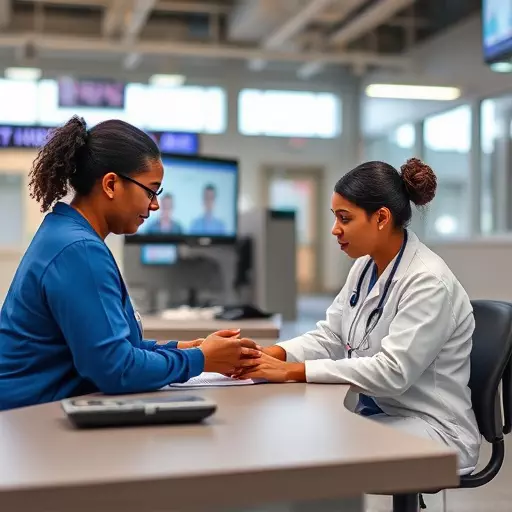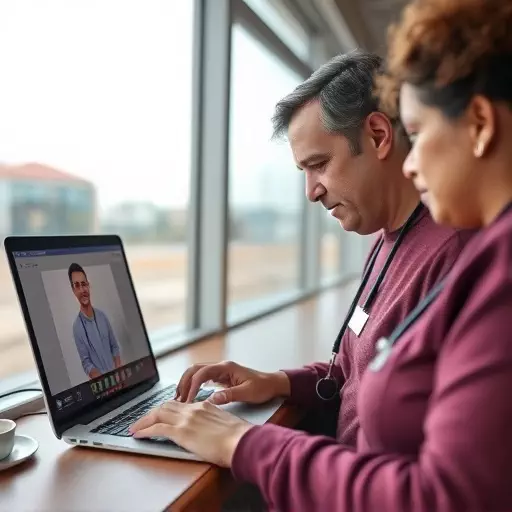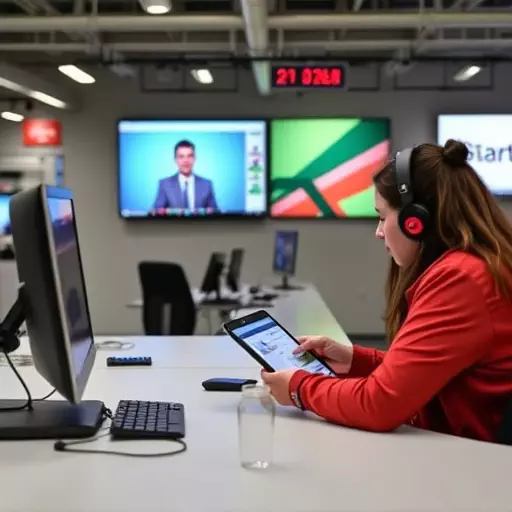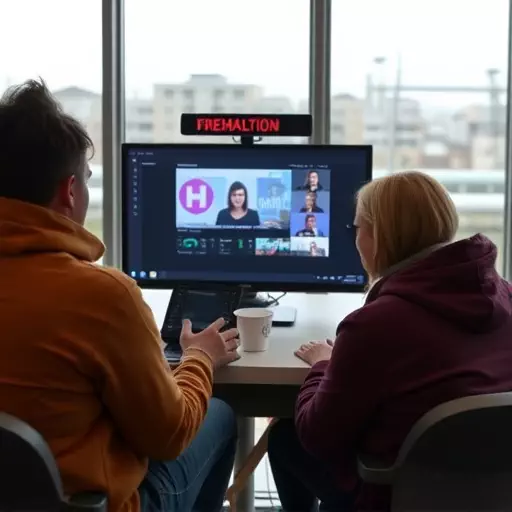In Gary-Lake Station, telehealth Ozempic consultations offer a promising solution to overcome challenges like limited healthcare access and food deserts. By combining virtual care with community engagement, this innovative approach provides remote patients with convenient guidance, educational resources, and support for medication adherence. Through online platforms, residents can connect with peers facing similar obesity challenges, fostering a sense of community that enhances health outcomes and promotes better diabetes management. This strategy leverages telehealth ozempic consultations Gary-Lake Station to address food deserts and build community support systems for Ozempic users, revolutionizing obesity care in underserved communities.
In today’s digital era, peer-to-peer support networks are transforming healthcare, especially in managing chronic conditions like obesity. This article explores innovative strategies to enhance Ozempic adherence, focusing on telehealth consultations from Gary-Lake Station and building virtual communities. We delve into the challenges of medication adherence and how community engagement can overcome food deserts, leveraging telemedicine for effective obesity care. Additionally, we discuss powerful peer-support systems tailored for Ozempic users, fostering a network that promotes healthier lifestyles.
- Understanding the Challenges of Ozempic Adherence
- The Role of Telehealth in Obesity Care
- Creating a Virtual Support Network for Patients
- Overcoming Food Deserts with Telemedicine and Community Engagement
- Strategies to Enhance Peer-to-Peer Support Systems
Understanding the Challenges of Ozempic Adherence

The journey toward better diabetes management and Ozempic adherence can be fraught with challenges, especially for individuals in Gary-Lake Station who face unique obstacles like limited access to healthcare services and the prevalence of food deserts. These factors can hinder consistent medication use, leading to potential health complications. Many patients struggle with understanding complex treatment plans, accessing necessary supplies, or even finding time for regular injections due to their demanding lifestyles.
Telehealth consultations offer a promising solution, providing Ozempic users in remote areas, including Gary-Lake Station, with convenient access to healthcare professionals. This innovative approach, particularly when coupled with building community support systems, can help address food deserts and improve medication adherence. By leveraging telemedicine, patients can receive guidance, answer queries, and gain motivation from peers facing similar challenges, fostering an environment that encourages consistent use of Ozempic to manage diabetes effectively.
The Role of Telehealth in Obesity Care

In today’s digital era, telehealth has emerged as a revolutionary force in obesity care, offering innovative solutions to challenges faced by communities, particularly those in rural or underserved areas, like Gary-Lake Station. By facilitating virtual consultations and interactions between healthcare providers and patients, telehealth overcomes geographical barriers, ensuring individuals have access to specialized care without the need for long-distance travel. This is especially beneficial for Ozempic users who require regular monitoring and support to maintain adherence to their treatment plans.
Addressing food deserts with telemedicine-based obesity care is another significant aspect. Telehealth enables healthcare professionals to connect with patients in remote locations, providing educational resources, counseling, and guidance on nutrition and lifestyle modifications. Building community support systems for Ozempic users through telehealth consultations fosters a sense of connection and shared experience, which can significantly enhance adherence rates. By combining virtual care with community engagement, healthcare providers can create comprehensive, accessible, and effective obesity management strategies tailored to the unique needs of diverse populations.
Creating a Virtual Support Network for Patients

In today’s digital era, building virtual peer-to-peer support networks is more accessible than ever before, particularly for medications like Ozempic that require adherence to improve health outcomes. Telehealth consultations centered around Gary-Lake Station offer a innovative solution to addressing food deserts with telemedicine-based obesity care. By creating online communities where patients can connect and share experiences, we empower them to overcome challenges related to medication management and lifestyle changes.
These virtual support networks foster a sense of belonging and accountability, encouraging Ozempic users to stay committed to their treatment plans. Through regular interactions, members can offer encouragement, exchange tips on meal planning and exercise routines, and provide emotional support—all while leveraging the convenience of telehealth consultations from the comfort of their homes, regardless of geographical constraints.
Overcoming Food Deserts with Telemedicine and Community Engagement

In many underserved communities, particularly those facing food deserts, access to healthcare and specialized treatments like Ozempic can be significantly hindered. Telehealth solutions offer a groundbreaking approach to overcoming these barriers by providing remote consultations and care for patients in Gary-Lake Station and similar areas. Through video conferencing and digital health tools, individuals can receive expert advice, education, and monitoring for their diabetes management from the comfort of their homes. This innovative strategy not only addresses the lack of local healthcare resources but also fosters a sense of community among Ozempic users, as they can connect with peers facing similar challenges.
Building community support systems is an integral part of enhancing medication adherence. By engaging and empowering these communities, healthcare providers can facilitate knowledge sharing, peer encouragement, and practical strategies for navigating the complexities of obesity care. This holistic approach ensures that patients receive not just medical advice but also emotional support, fostering a sense of belonging and encouraging sustained participation in their health journey. Addressing food deserts with telemedicine-based obesity care paves the way for improved outcomes and better quality of life for those within these communities.
Strategies to Enhance Peer-to-Peer Support Systems

To enhance peer-to-peer support systems for Ozempic adherence, healthcare providers in Gary-Lake Station can leverage telehealth consultations, making medical advice and emotional support more accessible. By integrating virtual platforms into their care models, patients can connect with peers facing similar challenges, fostering a sense of community that addresses food deserts often associated with limited access to fresh produce and healthy meal options. This telemedicine-based approach not only facilitates obesity care but also builds robust community support systems.
Additionally, creating online forums or chat groups dedicated to Ozempic users allows for continuous sharing of experiences, tips, and encouragement. Regular engagement sessions facilitated by healthcare professionals can further strengthen these networks, ensuring members stay motivated and committed to their treatment plans. Such strategies aim to complement traditional care methods, ultimately improving adherence rates and health outcomes for all participants.
